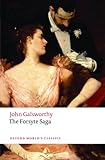
“I did not really know where I was going, so, when anyone asked me, I said to Russia,” says Evelyn Waugh in his account of his travels along the Mediterranean coast. During my graduate studies at Oxford, I became friends with a group of people of Waughian tendencies, Russophiles to whom admitting that you spoke no Russian and had not ridden the Trans-Siberian Railway made you a pariah (though they did make allowances for those who had not gone to public school).
Last summer, when I was home in Turkey, some of my Oxford friends asked me to join them on a hiking trip to Georgia. I was excited about visiting an ex-Soviet country, and even started learning the alphabet. But then the Turkish coup attempt happened on July 15, and I had to cancel the trip. When one’s travel plans are thwarted, one naturally gravitates towards bookshelves, and there, in the upper reaches, I saw John Massey Stewart’s Across the Russias, with onion domes of Orthodox and Muslim extraction on the cover, bought in a second hand bookshop in North Carolina during a particularly acute streak of compulsive travel-book purchases. A quick check revealed that “the Russias” in this 1969 book included Georgia, and I started reading.
Stewart and his friend David set off in a Mini lent to them by the British Motor Corporation, with hundreds of rolls of film and 200 model BMC cars in tow. Both items feature heavily in the story: the model cars win hearts and minds in Tbilisi, and the book is generous with photos, which are uncannily crisp for a book of more than 40 years.
In his prologue, Stewart gives a pedigree of his Russophilia: his father had been a tutor to a Russian family in Tsarist times and had written two books about the country, and he himself wrangled a job with the British Trade Fair in Moscow in order to secure the permits required for this trip. Try and out-Russian that, I thought, of my Oxford friends. And, oh, he is a Cambridge man.
The whole text is written in excellent humor; Stewart comes across as the sort of travel companion that no hardship will sour and who will always find something to appreciate in the places he visits. Still, now and then a “Western” condescension comes through, as in when one of their guides in Moscow asks why the Americans want war: “I was horrified that this intelligent woman who had spent years in the States should believe such a thing.” In a way, such outbursts on the part of Stewart make the text endearing, as they are counteracted by precious moments when the anthropologist’s or “world-traveler” lens is turned back upon himself. Nowhere is this as delicious as when, in Kiev, they are forced to have a theological conversation where, as opposed to contemporary travel accounts, it is the “locals” who are surprised at the tourists’ gullibility on matters of faith:
The conversation turned to religion, and Leonid asked if we believed in God, obviously wondering if we could possibly say yes; when we both did, he looked incredulous.
As Stewart travels trying to access “the soul” of the “Russias,” there are many such through-the-looking-glass moments, and he is constantly humbled by the friendliness and the curiosity of the people he encounters. The Mini draws crowds wherever they go, and they try to diffuse political questions—ordinary people praise communism and pity them for living in a capitalist country—by showing pictures of the Royal Family and Prince Philip’s hobnailed soles.
In Kiev, just as their cruise boat on the Dnieper is about to leave one of the landing stations, Stewart watches a peasant woman running for the landing, calling out “Dyadya Volodya!” [“Uncle Volodya!”] to the ticket officer who makes the boat wait for her, like a scene from a romantic novel. Stewart’s narrative covers long stretches of road and airspace where we take in the scenery, but it is punctuated with these moments when times compresses and people have to rush to things. In Odessa, he tries to deliver a coat he has brought from London from a Russian emigrée for her elderly mother. This is where the story gets a bit John Le Carré, as he runs late trying to lose the secret police car tailing him, responds as politely as he can to the mother’s protestations of hospitality, and makes it just in time to catch the boat to Yalta.
“Of all the places we had visited,” he says, when he makes it to Tbilisi “Moscow’s heavy hand seemed to fall lightest on Georgia.” He talks about the town as the “Paris of Russia,” but also speaks of “a transfusion of oriental blood,” the “Georgian beauties rated highly by Persian and Turkish harems.” It is in the Caucasus that, for him, the two “easts,” Muslim and Soviet, seem to meet. Accordingly, Stewart is drawn to the famous hammams of Tblisi and there, with the masseur, has the sort of conversation that every Englishman fantasizes about once he has travelled beyond the Suez and/or the Urals:
Did he have many people from England? “Not since the Revolution.” I was the first Englishman since the Revolution? “Yes” and uninterestedly motioned me to turn over.
However, conversation with another visitor who can actually speak English reveals that Stewart is not the first, and dispels his illusions about having been massaged by a man who has massaged Alexander Pushkin and Joseph Stalin. Stewart punctuates his text with incidents detailing how he is disabused of several notions about communism, and of his own place in the grander scheme of things, giving the narrative a light touch of the picaresque. Mirroring the motions of the woman who called back the ferry in Kiev, Stewart—having left his friend David to take the Mini back to England—is late for his flight to Tashkent and hails the plane from the tarmac. The plane duly halts and the flights of steps are put out a second time, for him.


 Then we’re off “to the East,” as I, with Stewart, push on towards Vladivostok, leaving my hiking friends in Caucasian mountain passes. After the usual orientalist descriptions of women drawing their veils over their faces in order not to be photographed, Stewart is astonished to find, along with other European paintings “a Poussin and collections of Wedgwood” in Tashkent’s art museum, just when he had thought he had accessed the real East. In Samarkand he wonders how the Soviet regime has managed to reduce the number of the faithful to a few old men who still go to Friday prayers. As he marches east, “eastern” features seem to become even more elusive: “Alma Ata seemed to have no oriental flavor whatsoever—apart from donkeys pulling carts and the high cheekbones of the native Kazakh population.” There, he encounters a girl who has read Jane Eyre and David Copperfield in class, and who is reading The Forsyte Saga at home for pleasure. In Turkmenistan, the adjective he uses for local color changes from “oriental” to “picturesque” when he talks about people keeping to more specific aspects of Turkic custom, like eating on the floor and wearing brass filigree “helmets,” rather than adhering to some diffuse image of the “East.”
Then we’re off “to the East,” as I, with Stewart, push on towards Vladivostok, leaving my hiking friends in Caucasian mountain passes. After the usual orientalist descriptions of women drawing their veils over their faces in order not to be photographed, Stewart is astonished to find, along with other European paintings “a Poussin and collections of Wedgwood” in Tashkent’s art museum, just when he had thought he had accessed the real East. In Samarkand he wonders how the Soviet regime has managed to reduce the number of the faithful to a few old men who still go to Friday prayers. As he marches east, “eastern” features seem to become even more elusive: “Alma Ata seemed to have no oriental flavor whatsoever—apart from donkeys pulling carts and the high cheekbones of the native Kazakh population.” There, he encounters a girl who has read Jane Eyre and David Copperfield in class, and who is reading The Forsyte Saga at home for pleasure. In Turkmenistan, the adjective he uses for local color changes from “oriental” to “picturesque” when he talks about people keeping to more specific aspects of Turkic custom, like eating on the floor and wearing brass filigree “helmets,” rather than adhering to some diffuse image of the “East.”
Everywhere, the inhabitants of the Russias confront Stewart with their own version of the stiff upper lip; a being content with one’s lot, thoroughly seasoned with “the love of Russia,” a kind of patriotism, he says, that is difficult to find in any other people. In Irkutsk, a Siberian says, “It’s easy cold here. There is no wind and no damp. But Leningrad’s winter is only fifteen degrees below zero, and it’s so damp that it’s much worse than here.” Stewart speaks of the free spirit of the Siberian, a place where people, already exiled, have little fear of the authorities in Moscow. The cold is so sturdy, in fact, he tells us, that before 1906, the Trans-Siberian used to run on Lake Baikal in the winter. We learn that “one train, risking the melting ice during the Russo-Japanese war, plunged through.”
Earlier in the book Stewart explains how he decided not to “do the Trans-Siberian Railway” (he himself uses quotations to alert us to the importance of this item of coolness) in order to take in Ashkabad, Baku, and Yerevan. In Khabarovsk he tells us ceremoniously that he will board the train for his last lap of the journey:
But the forth-coming twenty-four hours would, I felt, be a wonderful opportunity for heart-to-heart conversations with the three Soviet occupants of a fourth-berth compartment, and the most famous train in the world, I knew, would be a splendid climax to my journey.
However, he enters his coach to see that it is filled with Japanese tourists he’s encountered earlier on his travels, and the obligatory German. Not only that, a conversation with a guard reveals that the train is not the Trans-Siberian at all, but the local from Khabarovsk to Nakhodka. “The bottom fell out of my world,” he says, as it does a bit from mine, for I feel that the experience is barred equally to me. As we are prepared to end our journey on this anticlimax, Stewart makes his way to the restaurant car and makes friends, visits the officers’ carriage, gives them picture postcards of London, becomes emotional, and tells the carriage that though he may not agree with their system he is won over by these open-hearted people (it must be contagious). In turn, the captain, unable to find something to give to Stewart rummages his pockets and gives him a key: “Here is a key, I will not lock my heart to you.” Stewart is duly overwhelmed by this gesture, and as an epilogue, reconsiders the moments when people he met questioned him about his life in the West. “Would I be converted to communism as Leonid had predicted in Irkutsk? I hoped so in that it would mean that communism had become better than my own system” he says, unlocking his own heart.
Image Credit: Pexels.








